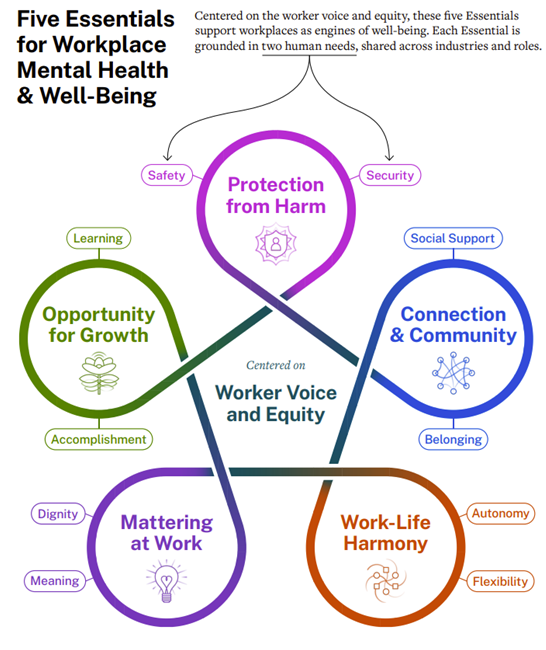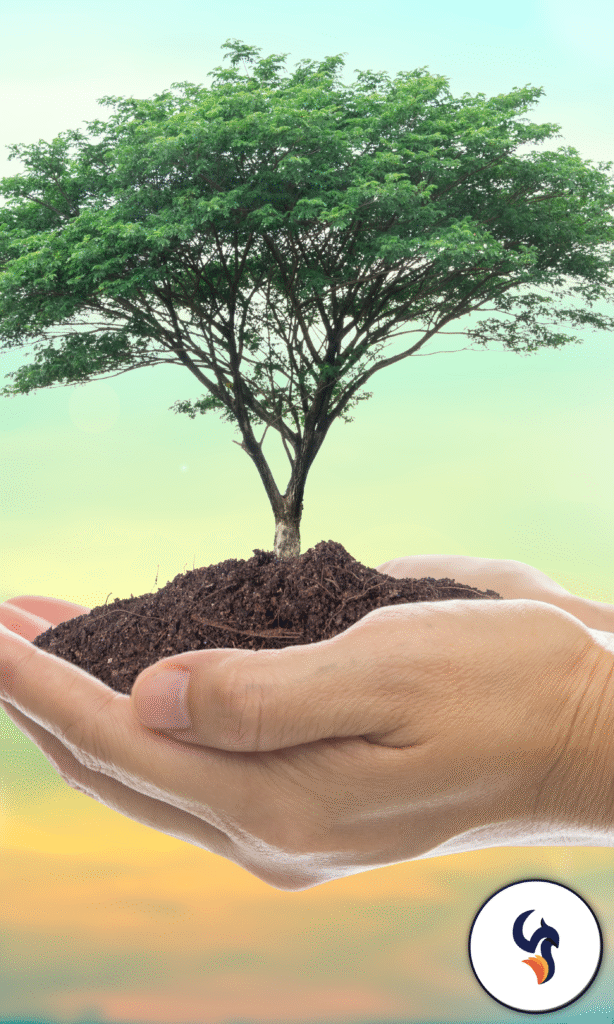Psychodrama as an Effective Treatment for Depression
By Scott Giacomucci, DSW, LCSW, BCD, CGP, FAAETS, TEP
Depression is one of the most common mental health conditions impacting millions of people each year. Studies in the early phases of the covid-19 pandemic suggested that the prevalence of depression tripled in samples in the United States from 8.5% pre-pandemic to nearly 27.8% in 2020 and 32.8% in 2021 (Ettman et al., 2020, 2022). Prior to the pandemic, depression was already a significant mental health concern; yet covid-19 has increased the need and demand for effective interventions in the treatment of depression. Group therapies, including psychodrama, offer practitioners with effective and efficient interventions for treating depression. The demand for mental health services and increased isolation from the pandemic position group therapy approaches as ideal due to their cost effectiveness, ability for one professional to provide treatment to multiple clients at once, and inherent emphasis on social connection. Experiential group methods not only highlight connection but also promote action, spontaneity, and playfulness which many find as important qualities in overcoming depression.
Depressive symptoms include changes in mood and appetite, diminished interest, pleasure, movement, activity, energy, and ability to think or concentrate, as well as an increase in depressed feelings, suicidal ideation, guilt, and worthlessness (APA, 2013). Depression is often paralyzing and debilitating. It impacts one’s ability to cultivate meaningful relationships, function in life, and maintain a positive sense of self. The feelings of hopelessness and worthlessness that come with depression are prone to fueling thoughts of suicide. Prolonged and chronic depression also leads to a layered experience of loss and ambiguous loss in that relationships, opportunities, and time tend to pass by unfulfilled. An individual experiencing depression is weighed down by the heaviness of a disheartened mood, slowed cognitive processing, fatigue, and the lack of interest or pleasure in activities. Depression results in a divorce of spontaneity, a disengagement from life, a rupture in one’s relationships with humor, joy, and playfulness.
Group therapy is an effective treatment for depression (McDermut, Miller, & Brown, 2001). There are unique benefits to group work compared to individual work when treating depression as groups offer a multiplicity of social interactions that are absent in individual work. A group for folks experiencing depression offers a sense of normalization, validation, and cohesion that would be tough to cultivate anywhere other than in a group setting. The worthlessness, isolation, and hopelessness related to depression can be alleviated by the connective group process. Groups provide opportunities for connection, cohesion, and solidarity. Group work actively counter acts depressive symptoms through psychoeducation, mutual aid, collective empowerment, and the eradication of loneliness. Groups help depressed clients see that they are not alone. The all-in-the-same-boat phenomenon that emerges in groups initiates existential validation and interpersonal comfort.
Group psychotherapy is part of Jacob Moreno’s triadic system – sociometry, psychodrama, and group psychotherapy (Giacomucci, 2021). Psychodrama is primarily a group approach, though it can be used in individual settings as well. As such, the benefits of general group therapy are as present in psychodrama group therapy. Psychodrama psychotherapy, however, includes more active, creative, dramatic, and body-oriented interventions than traditional group therapy. The action methods involved in psychodrama may be particularly useful in combatting symptoms of depression that include a reduction in physical activity, loss of energy, and diminished interest and pleasure in activities. These three specific depressive symptoms are actively addressed through the experiential nature of psychodrama groups which warm participants up to action through spontaneity training, improv games, experiential sociometry, and role-playing techniques. Moreno’s tombstone reads “the man who brought laughter into psychiatry” (Nolte, 2014), a notion which is further supported by recent research findings demonstrating that participants experience the psychodrama groups as fun (Giacomucci & Marquit, 2020). The inherent incorporation of playfulness, humor, and spontaneity in psychodrama treatment may further contribute to its effectiveness in treating depression. The current research literature on psychodrama psychotherapy as a depression treatment supports its effectiveness, though more research is needed (Costa et al., 2006; Dehnavi, Hashemi, & Zadeh-Mohammadi, 2016; Erbay et al., 2018 Giacomucci, Marquit, Miller-Walsh, & Saccarelli, under-review; Souilm & Ali, 2017; Wang et al., 2020). Furthermore, some evidence has emerged depicting an inverse relationship between spontaneity and depressive symptoms (Testoni et al., 2016, 2020). While more research is needed in this area, the relationship between spontaneity and depressive symptoms deserves further exploration.
Spontaneity is the curative agent in psychodrama psychotherapy (Moreno, 1953). Spontaneity is defined as an energy that helps us facilitate new responses to old, reoccurring situations, and adequate responses to novel situations. The emerging spontaneity research demonstrates spontaneity’s positive relationships to various measures of well-being and social functioning, as well as its inverse relationship to other psychosocial problems or mental health disorders (see summary of the spontaneity research in Giacomucci, Marquit, & Miller-Walsh, 2022). Depression, through the lens of spontaneity theory, would be conceptualized as an absence of spontaneity – stuckness, inability to live freely, and reoccurring response to the often chronic symptoms of depression. The infusion of spontaneity, accessed through a warming-up process, helps patients reconnect to the vitality of life and develop new responses to their inner experience and social circumstances. Spontaneity seems to be a remedy for depression and other mental health conditions.
Spontaneity is only accessed through a warming-up process – this is depicted through Moreno’s Canon of Creativity (Moreno, 1953). In psychodrama practice, the warm-up phase of a group most often involves spontaneity games and/or sociometry processes (see Giacomucci, 2021 for a comprehensive overview of experiential sociometry and the Canon of Creativity). Simple sociometry processes, such as locograms, floor checks, spectrograms, and step-in sociometry, can be employed in groups focused on the topic of depression to provide psychoeducation, connection, normalization, and develop new insight for clients. One example is to employ a floor check of depression symptomology. This would entail printing out the symptoms of depression on different pages and distributing them throughout the group room while providing brief psychoeducation (Dayton, 2015). Then, asking participants to physically place themselves at the symptom that answers a prompt – for example, “which symptom do you experience the most often?”, “which symptom feels the most disruptive to your life?”, “which symptom do you experience least often?”, “which symptom do you feel you have gotten better at coping with?”, etc. With each new prompt, a new constellation of clustered group members emerges. In between prompts, participants are directed to share with the group-as-a-whole, or to share with each other about their choices. This promotes mutual aid, connection, validation, self-awareness, and group cohesion (Giacomucci, 2020). These sociometry processes can be employed as stand-alone group processes or as warm-ups to a psychodrama or other group activity.
The psychodramatic process has the power to help participants access their spontaneity, address underlying issues, confront their depression, and develop hope for the future. In a psychodrama enactment, patients could externalize the negative beliefs related to their depression to renegotiate their relationship to core beliefs and actively or symbolically replace them with new positive cognitions. Strength-based psychodrama vignettes can help clients enlist their personal strengths and develop new strengths or resources that may be needed to recover from depression and related hopelessness or unworthiness. A client could have a direct conversation with their depression in psychodrama, explore their relationship and practice new intrapsychic responses to depressive symptoms in the safety of the group with the support of others. Psychodrama allows patients to travel into the future and engage with themselves in remission/recovery from their depression – embodying a new self, living with hope, peace, and purpose. The interpersonal focus of psychodrama and sociometry provides clients with opportunities to practice implementing new social skills, role train for future situations, and experiment with new versions of self in the group.
The very nature of depressive symptoms impacts an individual’s sense of interest, pleasure, energy, and physical movement. With this in mind, it makes senses that interactive, engaging, and action-based approaches would be desired in the treatment of depression. Sociometry, psychodrama, and group therapy provide clients with tools for combating the stigma, isolation, shame, guilt, and loss often associated with depression. Experiential sociometry processes allow group workers to bring the process to life through dynamic and engaging psychoeducation and inherently connecting group activities. Psychodrama offers participants with opportunities to externalize parts of self, develop new roles or strengths, practice for future social situations, and envision a hopeful future.
References
American Psychiatric Association, D. S., & American Psychiatric Association. (2013). Diagnostic and statistical manual of mental disorders: DSM-5 (Vol. 5). Washington, DC: American psychiatric association.
Costa, E. M. S., Antonio, R., Soares, M. B. D. M., & Moreno, R. A. (2006). Psychodramatic psychotherapy combined with pharmacotherapy in major depressive disorder: an open and naturalistic study. Brazilian Journal of Psychiatry, 28, 40-43.
Dayton, T. (2015). NeuroPsychodrama in the treatment of relational trauma: A strength-based, experiential model for healing PTSD. Health Communications, Inc
Dehnavi, S., Hashemi, S. F., & Zadeh-Mohammadi, A. (2016). The effectiveness of psychodrama on reducing depression among multiple sclerosis patients. International Journal of Behavioral Sciences, 9(4), 246-249.
Ettman, C. K., Abdalla, S. M., Cohen, G. H., Sampson, L., Vivier, P. M., & Galea, S. (2020). Prevalence of depression symptoms in US adults before and during the COVID-19 pandemic. JAMA network open, 3(9), e2019686-e2019686.
Erbay, L. G., Reyhani, İ., Ünal, S., Özcan, C., Özgöçer, T., Uçar, C., & Yıldız, S. (2018). Does psychodrama affect perceived stress, anxiety-depression scores and saliva cortisol in patients with depression?. Psychiatry investigation, 15(10), 970.
Ettman, C. K., Cohen, G. H., Abdalla, S. M., Sampson, L., Trinquart, L., Castrucci, B. C., … & Galea, S. (2022). Persistent depressive symptoms during COVID-19: a national, population-representative, longitudinal study of US adults. The Lancet Regional Health-Americas, 5, 100091.
Giacomucci, S. (2020). Experiential sociometry in group work: Mutual aid for the group-as-a-whole. Social work with groups, 44(3), 204-214.
Giacomucci, S. (2021). Social work, sociometry, and psychodrama: Experiential approaches for group therapists, community leaders, and social workers (Vol. 1). Springer Nature.
Giacomucci, S., & Marquit, J. (2020). The effectiveness of trauma-focused psychodrama in the treatment of PTSD in inpatient substance abuse treatment. Frontiers in Psychology, 896.
Giacomucci, S., Marquit, J., & Miller Walsh, K. (2022). A controlled pilot study on the effects of a therapeutic spiral model trauma-focused psychodrama workshop on post-traumatic stress, spontaneity and post-traumatic growth. Zeitschrift für Psychodrama und Soziometrie, 21(1), 171-188.
Giacomucci, S., Marquit, J., Miller-Walsh, K. & Saccarelli, R. (under-review). A Mixed-Methods Study on Psychodrama Treatment for PTSD and Depression in Inpatient Substance Use Treatment During Covid-19.
McDermut, W., Miller, I. W., & Brown, R. A. (2001). The efficacy of group psychotherapy for depression: A meta‐analysis and review of the empirical research. Clinical psychology: Science and practice, 8(1), 98-116.
Moreno, J. L. (1953). Who shall survive?. Beacon House.
Nolte, J. (2014). The philosophy, theory and methods of JL Moreno: The man who tried to become god. Routledge.
Souilm, N. M., & Ali, S. A. (2017). Effect of psychodrama on the severity of symptoms in depressed patients. American Journal of Nursing Research, 5(5), 158-164.
Testoni, I., Bonelli, B., Biancalani, G., Zuliani, L., & Nava, F. A. (2020). Psychodrama in attenuated custody prison-based treatment of substance dependence: The promotion of changes in wellbeing, spontaneity, perceived self-efficacy, and alexithymia. The Arts in Psychotherapy, 68, 101650.
Testoni, I., Wieser, M., Armenti, A., Ronconi, L., Guglielmin, M. S., Cottone, P., & Zamperini, A. (2016). Spontaneity as predictive factor for well-being. In C. Stadler, M. Wieser, & K. Kirk (Eds.), Psychodrama. Empirical research and science 2 (pp. 11-23). Springer, Wiesbaden.
Wang, Q., Ding, F., Chen, D., Zhang, X., Shen, K., Fan, Y., & Li, L. (2020). Intervention effect of psychodrama on depression and anxiety: A meta-analysis based on Chinese samples. The Arts in Psychotherapy, 69, 101661.















